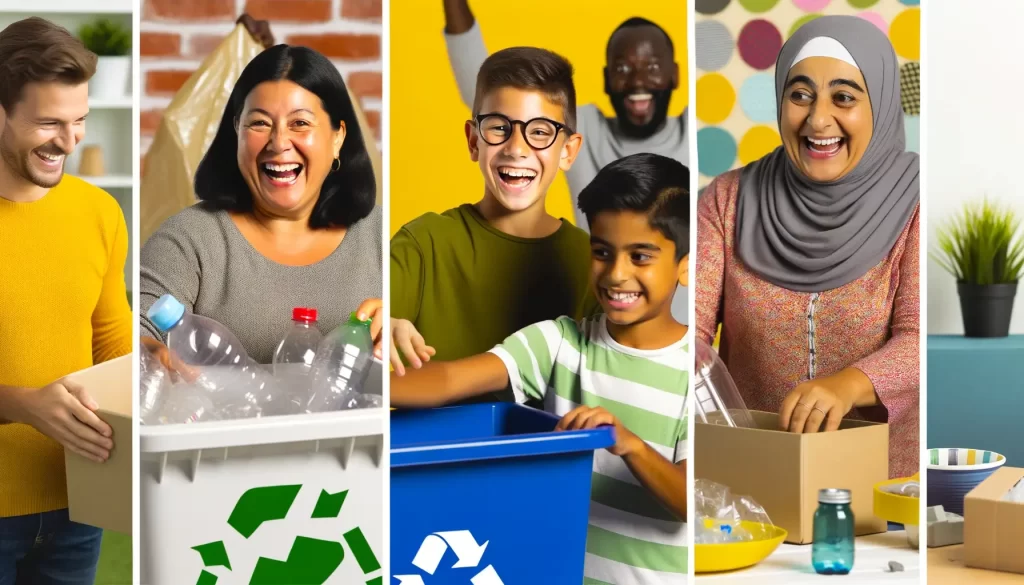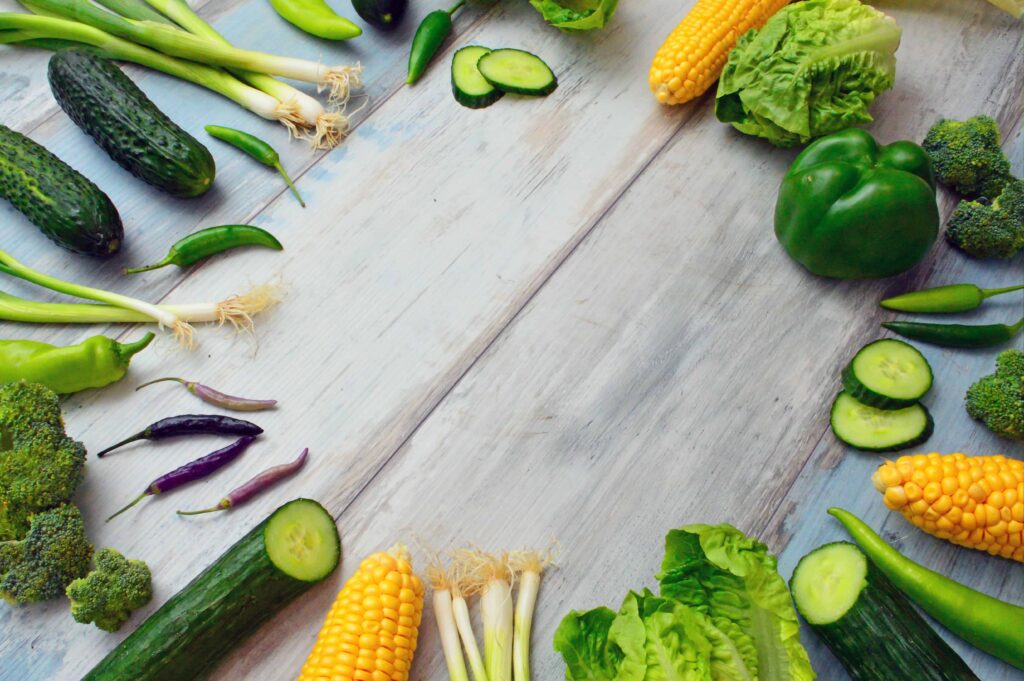To live a zero waste lifestyle is an eco-friendly and sustainable means of reducing waste through reusing, recycling and composting. It involves minimizing the use of single-use plastics and finding alternative, reusable products. In this article, we will explore the key principles and practical tips for zero waste living, ways to reduce food waste, plastic alternatives, and making lifestyle changes towards a more sustainable future.

What is zero waste lifestyle?
A zero-waste lifestyle is about reducing the amount of waste that goes to landfills and incinerators. Zero Waste is a journey, which entails changing our consumption behavior and adopting practices that minimize the environmental impact. Practicing a zero-waste lifestyle encourages people to take on sustainable approaches where they make conscious decisions to eliminate waste and reduce carbon foot print.
How can I start living zero waste?
The shift in mindset and habit is vital for anyone who wants to go on a zero waste journey. Individuals who want to begin living a zero waste life should first analyze their current waste production and identify areas that could be improved. This will require them to adopt mindfulness in their daily choices by choosing options that produce less garbage such as using reusable things instead of single ones.
What are good ways on how to live a life with no wastes?
To transition into a more sustainable lifestyle, there are some tips for zero waste living. Some examples of these may include using reusable containers, and water bottles, selecting eco-friendly alternatives over single-use plastics, as well as producing less garbage. On top of these principles, 5 R’s which stands for refuse, reduce, reuse, recycle and rot, can also be used by individuals in guiding them towards achieving zero waste.

What are the basic principles of people who live without producing any wastes
The basic principles of those who practice Zero Waste include decreasing rubbish generation embracing sustainability rejecting throw it away mentality and enhancing environmental conservation. These principles direct people towards trash reduction; sustainable methods and mindful buying habits One’s adherence to such guidelines will have a positive effect on the environment thus contributing to the Zero Waste movement.
How to go zero waste?
Transitioning into a zero waste lifestyle means making intentional decision to cut down on waste and adopt sustainable practices. It is all about rethinking of daily lifestyles, consumption patterns and product selection to be in line with environmental concerns and waste reduction.
What are some practical zero waste tips for beginners?
For beginners who want to start living a zero waste life, there are several practical tips that can make the transition easier. These include carrying reusable bags and produce bags, using refillable containers for food and household products, and opting for eco-friendly alternatives to traditionally disposable items such as reusable cutlery and cloth napkins.
How to reduce plastic usage and go zero waste?
To reduce the use of plastics as well as become zero-waste, individuals can first of all identify areas where single use plastics can be substituted with sustainable alternatives. This might involve using reusable water bottles, changing over to stainless steel or glass jars, avoiding plastic straws and utensils. As well, preferring products with minimal packaging as well as supporting companies that adopt zero-waste policies will further decrease plastic use.
What are the best zero waste stores to get you started?
There is a variety of store offering different ranges of products towards commencement of a journey towards one’s self-fulfilling life with minimum wastage. From reusable household items to sustainable personal care products, these stores can provide individuals with the necessary tools and resources to begin their sustainable living journey.

Reducing Food Waste
Zero waste living demands that we reduce food waste in order to contribute to sustainability and protection of the environment. In addition, it also minimizes the organic matter sent to landfills and supports sustainable food practices. Here are some interesting facts about how much it means to recycle
What are effective ways to reduce food waste in a zero waste lifestyle?
In a zero waste lifestyle, effective ways to reduce food waste entail meal planning to minimize excess food, using food scraps for composting, and supporting local farmers and markets so as to lower the carbon footprint associated with food production and transportation.

How to compost food waste in a sustainable manner?
Composting food waste sustainably involves setting up a home compost system or using community composting facilities. If such organic wastes like fruit peels and vegetable scraps are being composted by people, it means that they can divert biodegradable materials away from landfills and make nutrient-rich soil for gardens or agriculture.
What are some innovative ways to reuse food packaging?
Individuals can think of creative ways of reusing their food packaging whenever they purchase any type. For example, glass jars can be used for storage while cardboard boxes could be transformed into do-it-yourself crafts or even utilized in organizing household items thus reducing what goes into landfills.
Recycle, Plastic Alternatives and Reusables
Adopting plastic alternatives and reusable products is a crucial step towards cutting down on plastic waste and moving to a zero-waste lifestyle. People can lower their ecological footprint and contribute to a better future through eco-friendly options and reusable things.
What are some eco-friendly alternatives to single-use plastic?
Eco-friendly substitutes for single-use plastics are available. Stainless steel straws, bamboo cutlery, silicone food storage bags, for example. These choices provide sustainable options that help people reduce the use of disposable plastics as they go towards zero waste living.
How to adopt reusable items in everyday living for zero waste?
The process of adopting reusable items in everyday living for zero waste encompasses incorporating sustainable goods into daily habits. This could include using reusable shopping bags, water bottles and coffee cups along with integrating reusable produce bags/containers which sustainably store food.

What are some easy swaps to reduce waste and start living more sustainably?
Some easy swaps that can reduce waste and promote sustainable living include changing from disposable paper towels to cloth napkins, refilling containers with household products rather than buying new ones, or wrapping food with beeswax instead of using plastic wraps. A lot is possible by making these little changes when it comes to reducing wastage.
If you like the content you can help me with a review here
Making Lifestyle Changes
So that, people can get a kinder and more eco-friendly life, the zero waste living calls for a shift in their lifestyles. A lifestyle change may require the use of refillable bottles, buying goods that are less harmful to the environment and reducing waste.
How do I make a successful lifestyle change towards zero waste living?
A successful lifestyle change towards zero waste living requires commitment and dedication to eco-friendly practices. This may involve gradually incorporating eco-friendly alternatives, reducing reliance on single-use items, and actively seeking ways to minimize waste production in daily life.

What are some simple ideas for zero waste living that anyone can adopt?
Simple ideas for zero waste living that one can adopt include carrying a reusable water bottle, using tote bags for shopping, and opting for paperless billing to reduce paper waste. Furthermore, having a zero-waste kit with essential reusable things could be helpful in supporting this kind of lifestyle.
How do I incorporate reusable containers and water bottles into my daily routine?
Incorporating reusable containers and water bottles into daily routines is all about making these materials accessible as possible as well as including them in everyday activities. By prioritizing the use of reusable containers for food storage and opting for a reusable water bottle, individuals can significantly reduce their reliance on single-use plastics and contribute to waste reduction efforts. Take a look into this guide on 5 reasons not to drink water from plastic bottles
FAQ
Zero waste living means a life that reduces waste production to the barest minimum and curtails environmental degradation through the reuse, recycling and composting of materials instead of discarding them in landfills.
What is zero waste living?
You can begin your zero journey by embracing small changes like reusable bags, bottles and containers; bulk buying; and avoiding disposable items such as plastic straws and utensils.
How can I start my zero waste journey?
To make zero waste swaps easy, one can switch to refillable water bottle, menstrual cup/ cloth pads for women or French press instead of pods.
What are some easy zero waste swaps I can make?
The result is not only reduced cases of pollution and landfill deposits but also better finances in the long run that encourage sustainability and mindfulness.
What are the benefits of zero waste living?
Waste reduction at home may involve composting organic wastes, buying products with minimal packaging (or no packaging), transforming things for more use or choosing reusable alternatives over disposable items.
How can I reduce waste in my home?
Beeswax wraps for food storage, stainless steel/glass food containers, compostable trash bags, bamboo toothbrushes, reusable cloth produce bags are some examples of zero-waste products.
What are some zero waste products I can use?
Opting out of unwanted mailings and catalogs, cancelling subscriptions that are not needed anymore while ensuring they have minimal or recyclable packing would be a way to approach junk mails.
How can I tackle junk mail and packaging waste?
This is vital for resource conservation, environment protection as well as mitigating excessive landfill wastes/pollution that endanger ecosystems and communities too much.
What is the importance of reducing waste?
Certainly! Although attaining an outright zero lifestyle may prove difficult; everyone can cut down on their garbage just by making deliberate choices to minimize their daily life wastage quantities.



